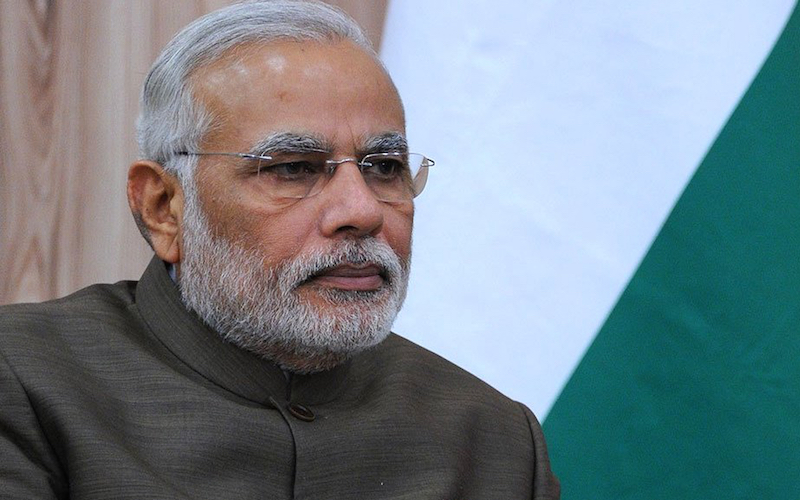
Is the Modi Government Throwing the Environment Under the Bus?
A recent report by Amnesty International highlights how the government in the regions of Chhattisgarh, Jharkhand and Odisha has failed to protect people and their rights in the process of development. Big corporations and large mining players are overriding the rights of the local communities by taking advantage of loopholes, both in law as well as in governance.
Over the past two years, there have been questions about the manner in which the Modi government has been managing the environment with respect to development projects. Leading environmental and action groups have alleged that the government is taking a pro-capitalist approach. On the other hand, the government has justified its approach to be valid on the grounds of public interest and sustainable development. The government is of the view that development cannot be compromised because of the environment.
EIA Notification is considered to be the main document which deals with the environment on the district and state level. The notification was prepared under the Environmental (Protection) Act of 1986. The section has to be read with sub-rule (3) of rule 5 of the Environment (Protection) Rules 1986. The notification has divided the projects into two categories, A and B. These categories have been designed on the basis of the impact of the project on human health, the environment and disasters.
Jeopardizing the process of EIA
Public hearings are one of the important elements of the EIA process but the Modi government has compromised this major element to a large extent. In December 2012, the government exempted the coal mines which are seeking one-time capacity expansion of up to 25% with a ceiling of up to two million tonnes per annum (MTPA) additional production.
The Report highlighted that companies in the areas of Jharkhand, Chhattisgarh and Odisha are using a colonial-era law to empower the government to acquire land just by publishing a statement of intent. Communities or individuals who object to these development projects can file an application with the designated authority under the coal ministry within 30 days and ultimately the government will decide the matter.
According t0 Amnesty International’s “Coal Mining and Violations of Adivasi Rights in India”: “The government plans to nearly double coal production by 2020, and Coal India wants to produce a billion tons of coal every year. Yet both the company and central and state governments don’t seem to care to speak or listen to vulnerable Adivasi communities whose lands are acquired and forests destroyed for coal mining.”
EIA notification clearly states that the notice regarding the public hearing has to be publicized widely. Even the Environment (Protection) Act of 1986 mandates that companies hold consultations with the communities who will be affected by the projects. A Parliamentary committee in 2007, however, pointed out a problem with notifications being published in the official gazettes. Most rural or tribal areas do not have access to these sources of information and secondly, the people are not literate enough to understand the contents. As a result, they are not aware of the risks involved and the resettlement and rehabilitation schemes. However, where there is no proper access to the information, methods like drum beating and radio/television advertisements related to the public hearing must be conducted.
According to the report, companies like Coal India Subsidiaries, South Eastern Coalfields Limited and Mahanadi Coalfields Limited are running several open cast mines which are in clear violation of human rights. The report highlights in-depth several incidents where the projects were expanded ignoring people’s interests and rights. The report also stated that EIA studies are done by private consultants and researchers are often bribed. One of the former environment ministers who spoke to the organization said that the environment impact assessment procedure in the country is “a bit of a joke.”
Several hydropower projects, river linking projects, building and construction projects were cleared by the government despite protests by the people. For example, the linking of Godavari-Krishna river basins could be illegal, unnecessary and misconceived reported the South Asian Network on Dam, Rivers, and People (SANDRP). Narmada Bachao Andolan (NBA) is already an on-going people’s struggle against a controversial water project initiated by the government. One witness was quoted by Amnesty International: “The bulldozer entered our village at 10 am. At the time, many of us had left for our fields and our daily work. Hearing that demolitions had begun, we ran home as fast as we could. By the time I reached the village, my house had been broken down. They didn’t even give us time to remove our belongings from our home- everything was destroyed, including a year’s worth of grain. It rained for a week after. In the next two days, we scraped together whatever we could. Our clothes were torn, belongings scattered- we built whatever shelter we could from what remained. Where do we go? How do we survive? Who will listen to us now?”
Conclusion
In 2015, a Parliamentary Standing Committee (PSC) rejected a high level committee report which was constituted to review the existing laws relating to water, air, forest, wildlife etc. (Down To Earth). The committee was also responsible for suggesting some of the remedial measures for strengthening the environmental governance system in India. But, since the PSC rejected the report, it is evident that the government is not ready to accept and pursue changes that are focused on the environmental governance system in India.
The EIA procedure should be reviewed thoroughly and the component of public hearings should be restored immediately. The participation of local communities and acknowledging of their rights should be a priority of the government. Unbiased and corruption free EIA studies of the project should be undertaken by the government. The government should focus more on following and strengthening the EIA procedure instead of rallying support from corporate lobby groups for political funding and the other agendas of political parties.

